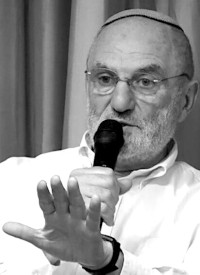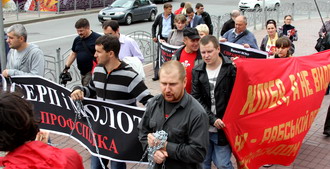
“I have never spoken to reporters. This is the first time in my life,” a construction worker confusedly told a Ukrainian TV reporter. The man was one of the people who have been building facilities at flashy Olympic Stadium, where the matches of the 2012 UEFA European Football Championship begin tomorrow.
On June 7, activists from the Social Movement [Sotsialnyi Rukh] coalition held a protest on Kreshchatyk against the systematic violation of the labor rights of the “guest workers” [zarobitchani] who built the entire infrastructure for Euro 2012 – from stadiums and terminals to highway overpasses and parking garages. As they fabulously enriched themselves on this nationally important construction project, subcontractors failed to pay an entire crew of concrete workers who built the parking facility at Olympic Stadium – a practice, common at most Kyiv construction sites, that massively victimizes workers who have been hired illegally.
Dmitry Tkachuk, a concrete worker from the village of Tucha in the Vinnytsia region of Ukraine, told a Gazeta.ua reporter about the builders of Ukraine’s main stadium live and work.
“Three months ago I came to Kyiv looking for work. At the train station, our crew of fifteen people was hired to work at Olympic Stadium. The man who hired us introduced himself as Ivan Ivanovich [i.e., “John Johnson”]. He promised us mountains of gold. I figured I could earn eight or nine thousand hryvnias. We live in a barracks. There is a complete lack of sanitation, one toilet for everybody. To go there in the morning you have to wait in a long queue. The first two weeks we worked we weren’t paid a kopeck. At first we paid for food with the money we’d brought with us. Then we sold off our mobile phones to pay for food. Also, we would from Lybidskaya metro station to Olympic Stadium [to save money]. Most of the guys returned home without a kopeck to show for their efforts, but I can’t tell my parents about this. We’re now working for 150 hryvnias a day [i.e., approx. 15 euros a day]. We send a hundred home and chip in twenty hryvnias a day for food for each of us. We have thirty hryvnias left over for all other expenses… We have nothing to lose.”
Ukrainian and foreign journalists gazed wide-eyed at the workers, as if they were aliens from an unknown planet.
“You say you’re owed forty thousand hryvnias [approx. 4,000 euros]. But in our line of work one shooting trip costs more than that,” a TV reporter said to a construction worker with a smile.
In response, the workers talked about their daily lives. A 19-year-old woman who had been hired to cook was raped in the barracks recently. And workers literally have to beat subcontractors into paying them – with fists and iron bars.
The protesters symbolically chained themselves to the gates of the fan zone, whence foreign tourists looked at them in amazement. Vitaly Mikhonko, leader of Hammer and Sickle, a trade union for guest construction workers, said that on June 8 Polish workers would block the tournament’s opening ceremony in Warsaw, demanding payment of back wages. By agreement with its Polish comrades, the Social Movement will block the final match of Euro 2012 in Kyiv if the Ukrainian Cabinet fails to meet their demands –immediately pay all back wages to workers, ensure normal living conditions, strictly observe work safety rules, and sign contracts with everyone employed at the construction sites, under the supervision of independent trade unions.
“The ruling class needs only one thing – profits, profits and more profits,” Vladimir Cheremis said at the protest rally. “Thanks to this scandal, the whole world can see what Ukrainian capitalism is like.”
When the rally was over, activists staged an unauthorized march along Kreshchatyk and Institutskaya Street to the Cabinet building, where they handed a petition outlining the workers’ demands to government officials. “We worked, but you didn’t pay!” the marchers chanted. Near the Cabinet building they ran into three MPs – Vasily Khara, Alexander Stoyan and Yaroslav Sukhoi, authors and lobbyists of the new proposed Labor Code. To their misfortune, the MPs had left for their lunch break at the wrong time. Sergei Kirichuk, coordinator of the Borotba Association [The Struggle], called on the MPs to withdraw the anti-labor law bill from parliament, and the three men quickly retreated to loud whistling and cries of “Shame!”
The rally in support of guest construction workers was the latest stage in the process of building a new leftist movement in Ukraine. By defending the rights of the most vulnerable segment of Ukrainian laborers – migrant workers – coalition members encourage those who have nothing to lose but their chains to protest.
Translator’s Note. The “guest workers” – or zarobitchani (in Ukrainian) – referred to in these articles are not migrant workers from other countries, but economic migrants from other regions of Ukraine who come to Kyiv, the country’s capital, in search of work. But the term (which literally means “earners”) is applied to all Ukrainian migrant laborers, including those who work abroad. According to some sources, there are 4.5 million suchzarobitchani. They work in Russia, the EU countries, and the US, and contribute as much as eight percent of Ukraine’s total GDP through their remittances.
Article printed from chtodelat news: http://chtodelat.wordpress.com
Оригінал статті : http://liva.com.ua/euro-protest.html
-
Історія
Африка и немцы - история колонизации Намибии
Илья Деревянко история колонизации Намибии>> -
Економіка
Уолл-стрит рассчитывает на прибыли от войны
Илай Клифтон Спрос растет>> -
Антифашизм
Комплекс Бандеры. Фашисты: история, функции, сети
Junge Welt Против ревизионизма>> -
Історія
«Красная скала». Камни истории и флаги войны
Андрій Манчук Создатели конфликта>>

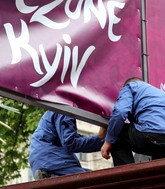
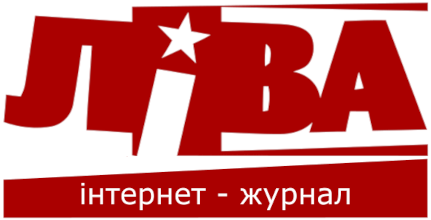










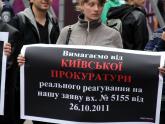
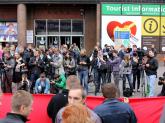
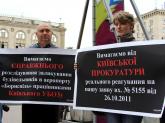
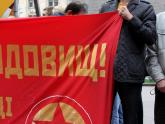
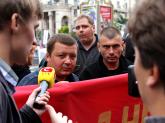
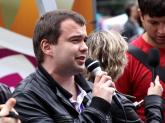
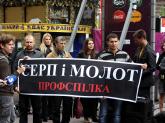
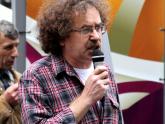
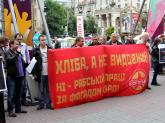
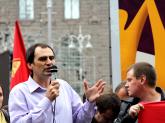
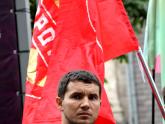
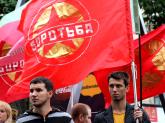

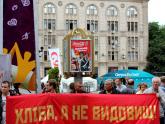
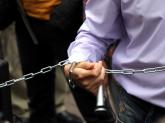
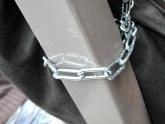

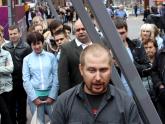
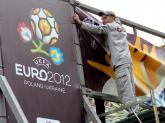
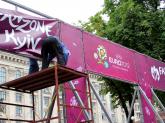
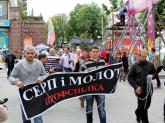
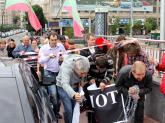
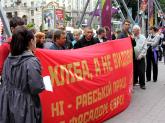
 RSS
RSS



